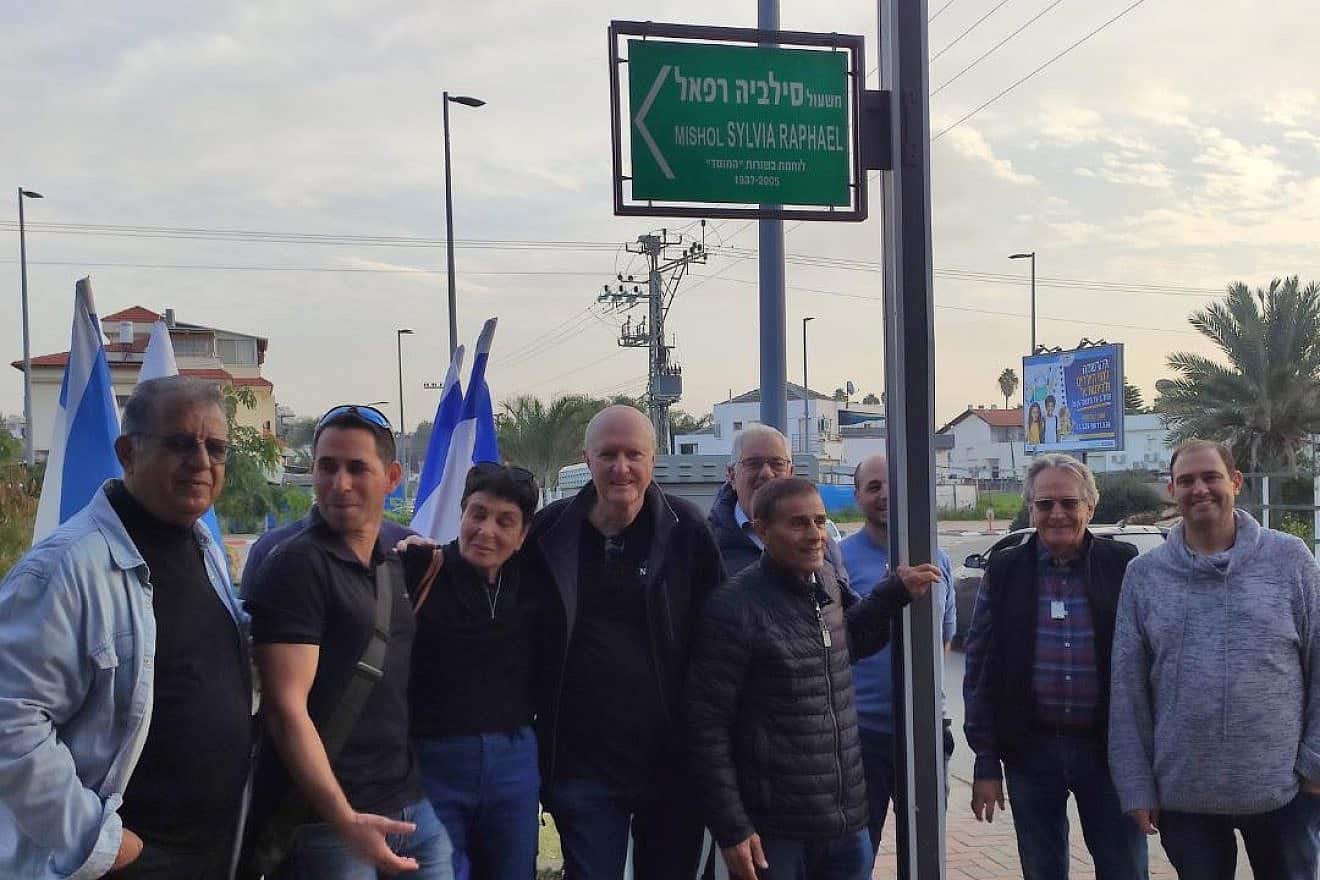On Jan. 22, 2024, old friends, representatives of Israel’s South African community and former colleagues gathered in Rosh Ha’ayin for the unveiling of a lane named in honor of former Mossad agent Sylvia Raphael.
Unveiling the sign, Rosh Ha’ayin Mayor Shalom Ben-Moshe told JNS: “I was approached as mayor to consider naming 30 streets throughout Rosh Ha’ayin after people who have contributed to the security and enrichment of the State of Israel—not familiar personalities or renowned generals or well-known fighters but ordinary people who performed extraordinary feats. Sylvia Raphael from South Africa was just one such person, working in the shadows as a field agent in the 1960s and early 1970s.”
What is known about Raphael is that “she displayed incredible heroism in providing vital information for Israel in its fight for survival,” he said. “This is how we value her contribution, and people walking along this picturesque riverside lane named after her can know they are doing so in safety because of the service she performed,” he added.
He expressed his hope that other cities across the country would follow Rosh Ha’ayin’s example in honoring Raphael.
Raphael (1937-2005), whose father was Jewish, was born in the South African town of Graaff-Reinet, and is buried at Kibbutz Ramat Hakovesh, north of Kfar Saba, where she was a member. Her tombstone is inscribed with the words: “I am buried in the soil of my soul.”
Raphael had an illustrious career in the Mossad. She took over from Israeli spy Eli Cohen following his public hanging in Damascus in May 1965—defying the Syrian assumption that Israel would never replace him with a woman. As an intimate friend of the Jordanian royal family, Raphael used to babysit the current Jordanian monarch, King Abdullah II.
Raphael was one of the very few agents who infiltrated PLO bases in Jordan and Lebanon.
Following the slaughter of members of the Israeli team at the 1972 Munich Olympics, she joined a hastily assembled squad of Mossad agents tasked with targeting Ali Hassan Salameh, operations chief of the Palestinian Black September terrorist group in Europe and thought to be the mastermind of the Munich massacre.
Raphael was also part of a group of Mossad agents who murdered Morocco-born waiter Ahmed Bouchiki (brother of Chico Bouchikhi from the Gypsy Kings) in Lillehammer, Norway, in July 1973, in a case of mistaken identity.
Known as the “Lillehammer Affair,” Raphael was sentenced to five and a half years in prison but was released after serving 15 months and deported from Norway in May 1975.
She was the subject of a book, “Sylvia Rafael: The Life and Death of a Mossad Spy,” and an internationally acclaimed documentary called “Sylvia: Tracing Blood.”
According to David Kaplan, an Israeli journalist who has spent nearly 20 years investigating and writing about Raphael, “The naming of a street after Sylvia is long overdue. The words expressed by Eitan Haber, former adviser to Yitzhak Rabin, in Yedioth Ahronoth in 2005 following Sylvia’s funeral at Kibbutz Ramat Hakovesh, remain true today:
“One day when true peace comes, they will write books about her, name streets after her and make movies of her life. If Israelis knew what Sylvia actually did, they would go every week to her grave to lay wreaths that would one day reach heaven.”
In addition to the lane in Rosh Ha’ayin, there is a square named after her at Migdal on the shore of Lake Kinneret.

























